|
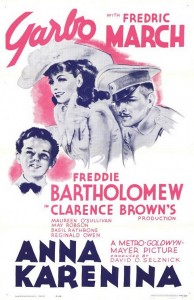
Synopsis:
A married countess (Greta Garbo) falls in love with a handsome military man (Fredric March), but her socially conscientious husband (Basil Rathbone) refuses to provide her with a divorce, ultimately forcing her to choose between a life with her new lover and contact with her beloved son (Freddie Bartholomew).
|
|
Genres, Themes, Actors, and Directors:
- Basil Rathbone Films
- Clarence Brown Films
- Freddie Bartholomew Films
- Fredric March Films
- Greta Garbo Films
- Infidelity
- Maureen O’Sullivan Films
- Morality Police
Review:
Tolstoy’s Anna Karenina has been adapted for the stage and screen numerous times, but this early version by director Clarence Brown remains perhaps the most famous and beloved. The screenwriters do a decent job compacting the meaty novel’s most critical plot points into a 90-minute storyline, though it lacks one essential element: a strong enough sense of why Anna would give up contact with her beloved son for a man like Count Vronsky. As played by March, his charm simply isn’t magnetic or overpowering enough to convince us he’s worthy of such a sacrifice by Anna, no matter how unhappy her marriage is to cold and rigid Karenin (Rathbone). The film opens rather creatively on a scene of Vronsky carousing with his military comrades, during which time we get a strong sense of this man as both “one of the boys” and apparently among the mightiest (given that he wins a lengthy drinking contest). Later, once he lays eyes on luminous Anna (Garbo) emerging in a shroud of mist from her train, we can see how and why he’d be smitten — but too little time is ultimately spent building a sufficient context for their life-changing romance.
However, Anna Karenina is really all about its titular character — and this film is Garbo’s all the way. She inhabited the role once before, in a silent adaptation by Edmund Goulding entitled Love (1927); ironically, that version — while too pared down narrative-wise to remain a must-see adaptation of the novel — demonstrates chemistry in spades, given the very-real romantic tensions between Garbo and her on-and-off-screen lover, John Gilbert. Nonetheless, those hoping for a more authentic, albeit radically condensed, look at Tolstoy’s famous novel would be best off checking out this version, which features lovely cinematography by William Daniels (who also served as DP on Love) and creative direction by Brown, who worked with Garbo in no less than seven of her films — including Flesh and the Devil (1927) and Anna Christie (1930). Watch for Maureen O’Sullivan in a truncated role as Kitty, who initially has eyes for Vronsky herself.
Redeeming Qualities and Moments:
- Greta Garbo as Anna Karenina
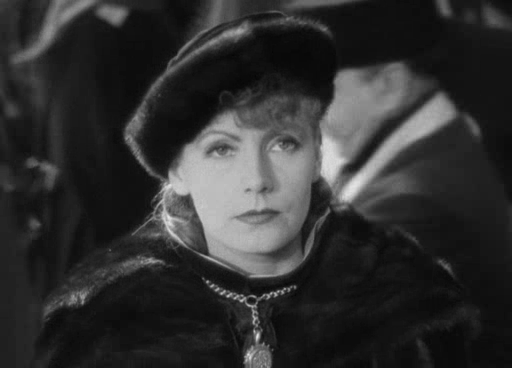
- William Daniels’ luminous cinematography
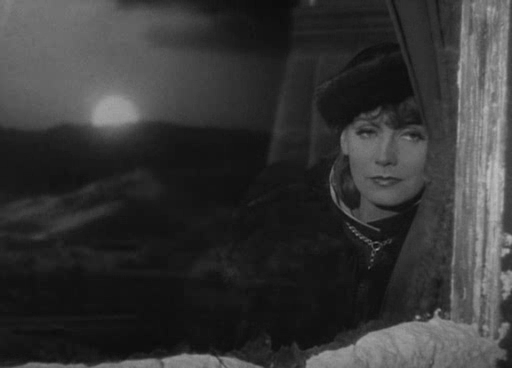
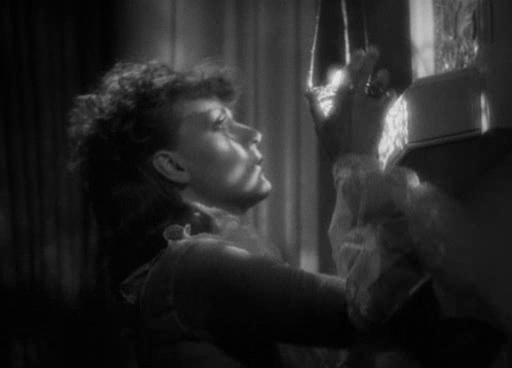
- Often-inspired direction by Brown
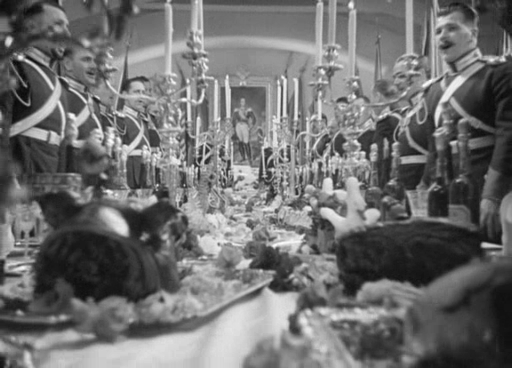
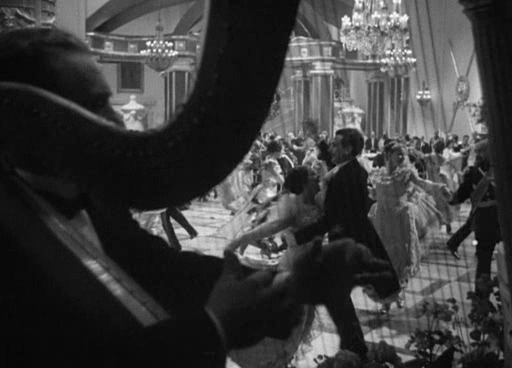
Must See?
Yes, simply to see Garbo in one of her most iconic roles.
Categories
Links:
|






One thought on “Anna Karenina (1935)”
A once-must, for its place in cinema history, and for Garbo.
I’ve read some of Tolstoy’s work (including ‘War and Peace’ and ‘Resurrection’) but ‘AK’ is still one I need to read. I’ve seen this film version before – and, although I’m more than certain that it couldn’t really capture such a large novel satisfactorily, perhaps it’s the basics of the story that have kept me from tackling reading the book: by that I mean, maybe I haven’t felt compelled to make it a priority to read a novel about an affair gone wrong (even if it is Tolstoy). However, if/when the occasion allows, I’ll see if I eat my words about that when the time comes.
I do agree with the assessment that the film is successful enough as an adaptation to be believable. Director Brown has managed a surprisingly non-Hollywood feel (note the sequences that punch up the Russian flavor). And, while it may be difficult to comprehend how Anna could leave her child…she is seen trying to work around the situation (i.e., even though her husband forbids it, she secretly visits her son on his birthday). One gets the sense that, given more time, opportunity and assistance by Vronsky, Anna might continue in her attempts at secretly reuniting with her son. I don’t have a problem with March’s performance – or should I say ‘magnetism’ – as Vronsky. The second March sees Garbo, he is a goner. And although someone being that lovestruck (with feelings based on appearance) is never easy for a more discerning viewer to swallow (Anna also has no real reason to tell Vronsky so quickly that she loves him), one also knows that there are times when the heart knows no rules. For example, Anna has apparently spent years being emotionally ignored by her husband yet has continued being a source of light and love for those who know her; for someone like that, the strain of self-denial can take its toll…therefore, in the case of Vronsky, it’s somewhat a matter of timing.
One reason I would like to someday read the novel: I would imagine that Tolstoy spends a lot more time exploring Anna’s complexity. In this film version, at least, Anna (especially near the end) is allowed to become a bit of a shrew (i.e. when she yells at Vronsky without having a real argument to stand on).
Brown made a significant number of quality films, and ‘AK’ is no exception – whether or not it’s ultimately a satisfying adaptation of the book, it’s an intelligent representation, it is filmed beautifully, has impeccable production value, and Brown gets fine performances from his cast.